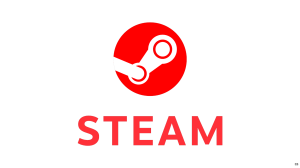Last week the creative team of Nighthawk, a Marvel series by David Walker and Ramon Villalobos, confirmed the book was cancelled after just six issues.
Videos by ComicBook.com
The series received strong reviews during its first few issues, but issue #1 sold less than 35,000 estimated copies and sunk to under 15,000 copies sold by issue #3.
When a good, critically acclaimed comic gets cancelled before it should, it’s very natural to play the blame game.
The usual industry line can be summed up by this tweet, courtesy of industry veteran and longtime Marvel writer Brian Bendis:
even mainstream comics that u r SURE r on solid ground need yr preorder support. u could b the deciding vote keeping your fave comics alive
— BRIAN MICHAEL BENDIS (@BRIANMBENDIS) August 28, 2016
“Pre-orders matter,” is the epitaph written on many a departed comic book series’ gravestone.
Moreover: That attitude among creators isn’t wrong.
Pre-orders help a store determine how many books they should order. Books that sell under a certain monthly threshold are targeted for cancellation, seemingly regardless of how that book sells in alternate formats. Trade sales and digital sales don’t really seem to matter (save for a few notable exceptions) when superhero publishers cancel comics. Often, Marvel and DC will pull the trigger on cancelling a book months before its first trade is even announced.
No one can say for certain why Marvel and DC make their cancellation decisions based on monthly numbers, but here is a guess: Those companies probably know their business well enough that they can come up with a certain “magic number” for sales that ensures a book’s profitability.
If a book only sells 10,000 copies a month, it’s probably not covering the money it takes to pay the creative team, pay the editors, pay the backroom staff, pay the marketing team, cover other overhead and cover publishing costs. And a book that sells that low is probably not going to sell 10,000 trades six months later.
There’s also an opportunity cost to comics.
A good creative team working on a low-selling series could probably be working on a title that sells more. After all, comics is as much a numbers game as it is art, and profitability doesn’t have any sympathy for critical acclaim or a small but passionate fanbase.
Every time a good book is cancelled and fingers get pointed, fans shouldlook at the system that got them there. Marvel and DC push out as many superhero books as they can, focusing on getting out those “All-New #1” issues because those tend to be the highest selling issue of a series’ run (there’s that darn numbers game again). In order to churn out those new series, Marvel and DC periodically cull their respective lines and get rid of the comics they see as dead weight.

Retailers have a different type of “dead weight” they need to manage. With few exceptions, those comics are non-returnable to the distributor, which means that retailers have a critical decision to make on how many copies to order. In a business with narrow profit margins, excess unsold stock is dead weight that can literally kill a comic book store. Retailers usually order based on existing readership and will cut their orders each month to match. There’s no room for growing the readership, because that involves additional risk and a possible hit to profits.
So, it doesn’t make fiscal sense for a comics publisher to keep running a less-than-profitable book and it doesn’t make fiscal sense for a comics store to order any more stock than they are absolutely certain they can sell. But what about the fans? What makes good fiscal sense for them?
The answer publishers want is to “put their trust” in the system. After all, a publisher picks out the best creative team for their books and makes the best creative decisions for the characters you love. You shouldn’t question what the publisher’s decision is, just pre-order your books a minimum of three weeks before anyone further down the supply chain actually knows how good a comic actually is. Don’t wait for reviews, don’t wait for your store owner to “upsell” you on a book, just trust in the direct market that everyone knows is isn’t operating to its fullest potential.
Trust isn’t easy to come by, especially when money is involved. When a publisher seemingly “ruins” a character in pursuit of controversy and shock (or even a good story), fans are less willing to hand over their money to that publisher.
That’s doubly true because of the relatively high costs of comics and the aggressive publishing strategies that Marvel and DC use to up their sales. With so many comics out there, most readers can’t afford to buy them all. So, they often choose the “safe bets” like Spider-Man or Batman instead of a book starring a less prominent character, regardless of quality.
Frankly, the dirtiest secret of the industry is that what makes the most fiscal sense for comic book readers is totally counterintuitive to what the industry wants. Trade waiting is the bane of struggling superhero series, as every trade waiter represents lost monthly sales that could have otherwise propped up a book. But between the discounted prices of Amazon and the free price of admission into a library, why would anyone fault a comic fan for choosing to trade wait? Why not read the reviews and make an informed decision on a complete story arc? Why not purchase it in a format that takes up less space? What incentive does the reader have to buy monthly, besides getting to read the story “live”? Reading comics can be very cheap to read legally, provided fans don’t get guilted by the wails of soon to be cancelled series.
Ultimately, this struggle is just part of the direct market system that distributes comics. The direct market is a weird, broken system (although probably an upgrade from the collapsing newsmarket system that preceded it), and everyone tries to manipulate it to work best for them.
Creators will ask fans to pre-order their comics to guarantee their continued employment. Retailers will order as little of a comic as possible to keep their profit margins intact. Publishers will produce as many comics as the market can bear in the hopes of getting as many sales as they can. And fans will choose how and in what way they should spend their money, regardless of whether it helps or hurts the industry.
Fans shouldn’t fault creators or even the publishers for pointing at lack of pre-orders for the cancellation of a good series. There’ssome fault that the fans need to own for not making the extra effort to keep comics series safe via preemptive patronage. It’s all a symptom of the harsh reality that is the non-returnable, heavily saturated market we live in. No one is to blame and everyone is to blame for the cancellation of good comics.
So, what’s the solution to this mess? I don’t think there is one (at least, without destroying the direct market as we know it). However, there are a few ways we could help relieve the weird tension between fans, creators, retailers, and publishers. If we can’t get rid of this flawed ordering system that punishes almost every party in the supply chain, every part of the comics industry needs to massage the system to get it to work better for everyone.
For one, publishers should look at how they market their comics, especially around the final order cutoff date that marks when a retailer can last adjust their order. If individual series are so reliant on pre-orders to survive, then the marketing needs to reflect that. Every ad and teaser for a book should have the words “PRE-ORDER BY” followed by the FOC date. There’s probably other incentives publishers can use to incentivize readers to pre-order books, although giveaways or extra discounts would be a little more costly and require mass coordination between a publisher and stores.
As for helping new series find a niche, limited returnability on new titles (especially ones that aren’t sure sellers) could encourage retailers to give more of these new series a shot. DC used returnability programs to help retailers “buy in” to their New 52 and Rebirth lines, which led to booming sales during those early months and gave books a chance to find a readership. DC’s Rebirth line also benefitted from staggering the releases of its new comics, so fans weren’t bombarded by 50 new titles to choose from. Say what you want about DC’s love of reboots, but the company seems willing to share some of the risk with their retail partners to give their books a chance to succeed.
Returnability isn’t a magic fix to the industry’s problems, though, and it won’t keep comics series alive unless stores can actually sell the extra stock. Every comic book store operates differently, but stores should recognize the responsibility they have in helping the industry thrive. I’m not saying that aggressive upselling is the solution to the industry’s woes, but how many retailers actually encouraged a fan of Secret Wars or Batman to give a book like Nighthawk (about a Batman-esque character trapped on our Earth because of Secret Wars) a shot?
There’s probably half a dozen other “solutions” to helping these series succeed, each of which involve some part of comics supply chain making an extra effort in some way. Making sure books are released on a consistent basis to stabilize weekly in-store traffic, sending out early review copies to get people talking around the order cut off date, targeted cross-selling, and maybe not flooding the market with as many new books could each probably help to make a difference. But any solution is just a band-aid and not a magic cure. Ultimately it comes down to making an extra effort. From fans, from creators, from publishers, and from retailers.
The direct market is here to stay, at least until some major publisher fully commits to exploring the digital publishing model a bit more seriously. Yelling at each other isn’t going to make the flaws of the direct market go away, but responsible publishing, ordering, and, yes, fan patronage, will at least help minimize the flaws and promote a more healthy system for ALL comics to thrive.









